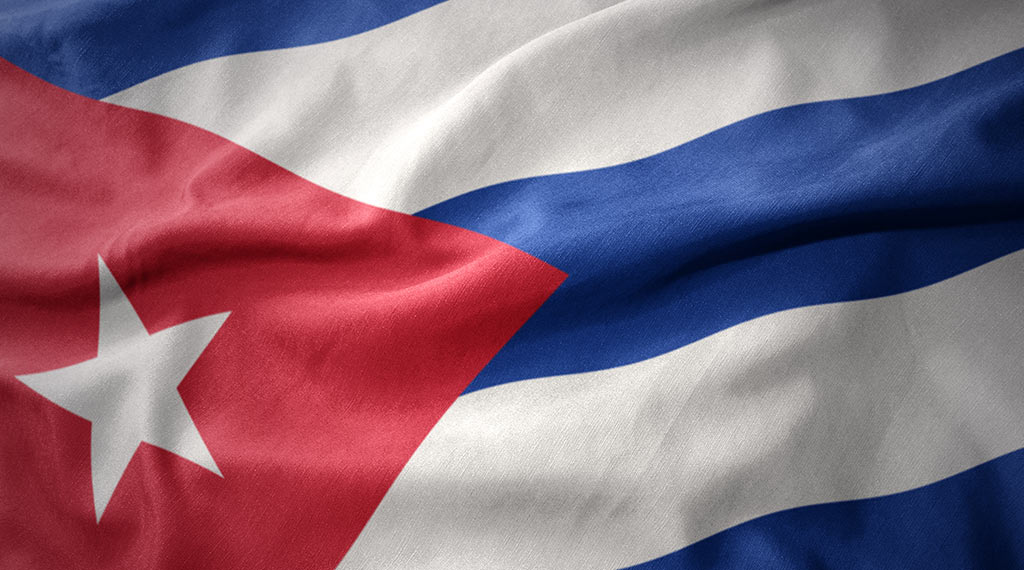No “Chicken Kyiv” for Cuba

Sunday, August 1st marks the 30th anniversary of President George H. W. Bush’s remarks delivered to the Supreme Soviet of Ukraine assembled in the capital city of Kyiv. New York Times columnist William Safire dubbed it “The Chicken Kyiv Speech.”
Within weeks of the gathering, the people of Ukraine, no thanks to Bush, declared their independence from the Soviet Union. The president’s introductory statement framed the balance of his dispiriting address, “And to the Deputies of the Soviet, Supreme Soviet, may I salute you.”
Twenty years later, James Carafano wrote in The Washington Examiner Bush’s Kyiv address “may have been the worst speech ever by an American chief executive.” Too harsh? Probably not.
To be sure, Bush’s diplomatic messaging, at the time, was a complex balancing act involving wildly shifting political weights, relationships, and timing as the Soviet Union’s institutional girders began twisting toward implosion. Nonetheless, Bush sided with the inimical Communist regime in hopes its fresh promises of transparency would make life a tad more bearable for the millions of Ukrainians agitating for freedom and independence.
“In fairness, President Gorbachev has achieved astonishing things,” Bush said, “and his policies of glasnost (openness), perestroika (restructuring), and democratization point toward the goals of freedom, democracy, and economic liberty.” Bush believed he might be saving Ukrainian lives by supporting sustained Soviet leadership, thus averting its military retaliation against the throngs of demonstrators protesting in the streets of Kyiv.
Only after their independence was in hand – 145 days later, and without much in the way of U.S. support – were Ukraine’s reformers heralded by Bush as courageous, patriotic activists whose organic bravery led the way in toppling the U.S.S.R. and ending the sadistic reign of its Communist Party. Despite his backdated expression of solidarity, few Ukrainians could forget the colossal miscalculation of the Chicken Kyiv Speech. The convoluted words of a U.S. President, who infamously characterized the same intrepid independence movement as mere “suicidal nationalism,” ripped at the very heart of Ukraine.
The Bush Administration aimed to be squarely behind the winner, especially if it turned out to be the guy with the key to the Soviet nuclear football. But Bush and his advisors reckoned wrong.
They chose the wrong side of history, and in doing so squandered a momentous opportunity to stand alongside the heroes of Ukraine, and with freedom-seeking revolutionaries in other former-Soviet republics. Bush assured his Communist hosts, “Americans will not support those who seek independence in order to replace a far-off tyranny with a local despotism.”
The Chicken Kyiv Speech is worthy of reexamination today, especially as America’s freedom-seeking neighbors in Cuba pine for solidarity in their rebellion against 62 years of dictatorship. The common villain is communism. There is no redeeming virtue in its perverse philosophy, nor honor in its brutal history.
Since the July 11th start of the Cuban uprising, President Joe Biden has mouthed a few sympathetic words for protestors there. Asked at a July 22nd press conference his opinion on communism, Biden had nothing good to say about it, yet stopped short of endorsing the idea of regime change, much less the prospect of the Cuban people casting off the murderous yoke of dictatorship.
The Biden Administration’s attention to the Cuban crisis has only ventured as far as to suggest the U.S. might donate COVID-19 vaccines, re-sanction specific officials of the Communist regime who have already been sanctioned, and reconsider remittance restrictions preventing Americans from sending money to their captive relatives through Cuba’s state-owned banks.
Sure, Biden joined the chorus of those in Congress calling for providing remote internet connectivity in response to the Cuban government’s censorship and blocking of electronic communications among the people. That’s good and well, but what the Cuban people need now, more than anything else, is clarion avowal from their American brethren that their conflict against communism is righteous, and that their captors are the spawn of an “evil empire.”
It is unlikely that kind of lucidity will come from either the president, or his State Department. Since Biden’s inauguration, the White House has frontloaded the agency with career foreign-service officers whose bureaucratic devotion to congenial diplomacy tends to come at the expense of timeless American principles and due respect for historic precedent.
To avoid emerging conflicts pitting freedom against bondage, such dutiful bureaucrats invariably recommend the oppressed remain patient, and endure a little more misery – just like in Kyiv, just like in Taipei, Hong Kong, Western China, Caracas, and just like in Havana. Competent American leaders, however, must never allow the pragmatism of diplomatic manners to attenuate the prudence of first principles, especially those predicated upon individual, God-given natural rights.
It is not too late for Biden if he can be brought to agree that torpor and indolence are not characteristics American presidents ought to display in the face of Communist dictatorships, and Communist oppression. The Cuban protesters should be roused, strenuously encouraged, and inspired – by Americans.
Those leading the uprising should be thrown American lifelines, not necessarily by the U.S. government, but by multiple strategies enabling Cuban protestors to connect with good, generous, and dedicated American people who understand the deadly ways of communism, and its wicked siblings of fascism, socialism, and despotism.
The voices of the Cuban people are directed toward the people of the United States, and they’re quite clear: What they are agitating for in the streets of Havana is far more than bearable regulatory relief, COVID shots, and internet access.
The Cuban people are mobilizing for freedom. They want to crush communism. They want independence.
Cubans do not want Chicken Kyiv.
Bob Schaffer is a former Representative in Congress from Colorado. He led multiple congressional delegations to Ukraine to foster stronger ties between the countries. A recognized education leader, he is currently the Headmaster for Liberty Common School and a member of the Center for Security Policy Advisory Board.
- No “Chicken Kyiv” for Cuba - August 1, 2021
